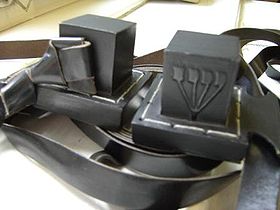 The Mitzva of Teshuva
The Mitzva of Teshuva
The Mitzva of Teshuva
An exposition on Rambam’s “Hilchot Teshuva” –
By Rabbi B. Horovitz, Rosh Yeshiva,
Yeshivat Dvar Yerushalayim
The Sages say that Teshuva – “Return” – was created before the world. This teaches us that Teshuva is not just a Mitzva, but a cosmic process that lies at the basis of nature. All nature follows a cycle, in which things return to their origin. The flora follows the cycle of the growth of the seed into plant and tree which produces fruit, which contains the seed for a new cycle. Then there is a water cycle. The oceans evaporate to be transformed into clouds, the clouds into rainfall, the rainfall into streams and the streams back into the ocean. There is a cycle in the life of the animals and in the life of man. He also begins from dust, reaches his prime and in the end returns to the dust. So also is there a cycle within the spiritual life of man which has its source in G-d; the soul strives to return to its Creator. So Teshuva is a cosmic process which pervades the nature of the world and of man. Man feels most alive if he participates in this process of Teshuva consciously. In this sense Teshuva was created before the world.
Above Nature
That which has been done, cannot be undone. If a person has broken something then it cannot be restored to its original condition entirely. Only through a very long process of healing can all signs of a wound be removed. But if a person loses a limb entirely, then it cannot be restored. So it is with some sins. Yet there are two elements of Teshuva. Apart from natural Teshuva, where there is only a possibility of partial restoration, there is a higher element of Teshuva which is supernatural, where that which has been done can be undone. That is also hinted at in the above saying that “Teshuva was created before the world”; it contains an aspect which stands above the processes of nature. Rambam’s Hilchot Teshuva deals with both aspects of the process of Teshuva.
Is Teshuva a Mitzva?
Rambam commences Hilchot Teshuva with: “There is one Mitzva: the Mitzva that the sinner should return from his sin before Hashem and should confess.”
In the “Explanation of this Mitzva and the Faith Principles which are attached to it and result from it”, he writes in Halacha 1. “When he does Teshuva and returns from his sin he is obliged to confess.” In the heading the Rambam seems to refer to Teshuva itself, not including the confession. Yet, in the words which he uses afterwards he seems to say that when a person does Teshuva he is obliged to confess, and the Mitzva is to confess. In his Sefer HaMitzvot (Mitzvah 73) he brings a different definition: the Mitzva is not just the confession but also the process of Teshuva. Now there are some authorities such as the Minchat Chinuch (see Mitzva 364), who deduce from the words of the Rambam in Halacha 1 that there is no Mitzva in Teshuva itself, but that the only Mitzva is confession.
There is a passage in the parsha of Nitzavim (Devarim 30) that says: “You should return to Hashem, . . . because this Mitzva which I command you today is not too far from you, nor is it too difficult for you.” Rabbi Moshe ben Nachman (Ramban) and others explain that this is the Mitzva of Teshuva. There are also other references to this Mitzva. Some (in accordance with the above view) explain that Rambam disagrees with Ramban and regards these passages as promises, but not as commandments. There is, however, another explanation connected with Rambam’s approach towards the reckoning of Mitzvot. Rambam believes that a basic principle upon which many others depend, is not reckoned as one of the 613 Mitzvot. For example, he does not include the Mitzva of Yishuv Eretz
Positive and Negative Teshuva
Rambam, Hilchot Teshuva, “Halacha 1: If a person transgressed any one of the commandments or prohibitions of the Torah, with or without intention, when he performs Teshuva and repents from his sin, he is obliged to confess in front of G-d.”
What does Rambam mean with the words, “. . . he performs Teshuva (penitence) and returns from his sin”? There is no word repeated in Rambam without reason. What is the difference between “he does Teshuva” and “returns from his sins”? There are two basic aspects to Teshuva. One is positive and one is negative. Positive Teshuva means to return to G-d, which applies to every person even if he has not actually sinned. The negative aspect is needed when a person has sinned. He realizes that the sin acts as a separation between him and Hashem, and he wants to return. “One must go far from the sin itself” as the only means of coming to the real return to Hashem. Yashuv me-Cheto means to turn and run away from the sin, but yaaseh Teshuvah means to run towards Hashem. These are the two aspects of Teshuva which are constantly hinted at in Hilchot Teshuva.
Confession
A major element of repentance is that a person is obliged to confess in front of G-d. This is one of the basic elements of Teshuva. The word Lehitvadot (confession) probably comes from the root “Hoda’a”, “to admit” that he has done wrong. If a person is not ready to admit that he has done wrong then obviously he will not be able to improve. Lehitvadot can also be related to the root “yadah”, “to throw”. When a person has sinned he has to throw himself far away from the origin of sin, and that he can best do by expressing the regret he feels. The power of confession is derived from two important principles.
The power of speech: The first principle derives from the importance of speech. It says in Bereshit (2, 7), “Man became a living being” when G-d created him. The Targum (Aramaic translation) to this passage says that man became a Ruach Memallela, a speaking spirit. The uniqueness of man is expressed in his power of speech.
In Hebrew, when the distinction between the human and the mineral, vegetable or animal is made, instead of “human”, the, term “medaber” (speaking species) is employed. The basic element by which man distinguishes himself externally from all the animals is his power of speech. Speech is the index of the mind. Speech is the means of communication, through which society is able to function and the individual is able to develop his mind. This is recognized in all aspects of the Torah, and the word of man plays such an important part in many laws. Thought is not regarded as having such a large effect upon environment as speech. Hence we ask in our prayer: “Yiheyu L erazon lmrei P1 Vehegyon L ibi “, for divine favor to crystallize the feelings of our heart into explicit words of our mouth. The words of prayer also impress upon us the lessons to be learnt. When we study, we do not do so silently but aloud. We recite from tte Torah, and we recite the Shema, because that makes a greater impact not only upon the mind but also upon the emotions. Similarly, if a person has done wrong it is not sufficient that he should feel that he has done wrong and feel regret in his heart, but he should express it in words. Then the words will help him to improve himself.
In front of G-d: The second principle which we learn is that this confession must be in front of G-d. One should feel at the moment of confession that one is standing and supplicating for forgiveness in front of Hashem, and this feeling will help him to overcome the power of the sin. According to natural law, the effects of the sin should remain with us just as with the effects of anything else. If a person has removed a spiritual limb of his life, then how can he restore it? How can the wrong become undone? The only way is by means of raising himself up to the presence of Hashem, to the supernatural level. The concept of Iehitvadot Iifriei Hashem (confession in front of G-d) is to raise teshuva up from the natural to the supernatural level.
Natural Teshuva is regarded as a healing process. That is why in the Berachot of the Amida we say, “Hashivenu Avinu Letoratecha”, followed by, “Refaenu Hashem Venerafe”. We pray to Hashem that He should forgive us and then that He should heal us. It is like a person who has been ill spiritually, and the treatment for his illness is penitence.
But there is also a supernatural Teshuva. If a person’s illness is so serious that it means he is going to die or lose a limb, the process of healing will not help. The Midrash says that they asked the Prophets, “What is the way whereby a sinner can gain atonement?” The Prophets answered: only through death. Not natural penitence. So they asked Hashem, and He said, “Let him do Teshuva.” If a person looks only as far as the Prophets, the highest possible level of human development, then evil will pursue evil-doers. According to wisdom and prophecy, there is no means of escaping basic evil. But if a person raises himself up above nature, even above the level of the highest human beings and their concepts, then he comes face to face with Hashem Who undoes what has been done. Even after the most serious evil, by means of Iehitvadot I/f-nei Hashem, confession in front of Hashem, he can start completely anew and create a fresh life.
Teshuva: Return to What?
The Hebrew word “Teshuva” means return. Return to what? To Hashem. Whenever a person does something wrong to his fellow man, it is not enough to restore his relationship with his fellow man and ask him for forgiveness. He has also to atone and confess his sin before Hashem, for every sin against man is a sin against G-d. Furthermore, Teshuva does not just mean that a person says he is sorry. First he has to have a feeling of awareness that he is in front of Hashem, from Whom he has been separated through his sin.
What divides a person from Hashem? Sin. “It is your sins that divide between Me and between you”. This is the great eclipse of G-d which we witness today, which removes our awareness of His nearness and creates the hidden ness of the Face of Hashem.
“That I might sit in the house of G-d all the days of my life” (Psalm 23) means that a person should at all times feel himself in the presence of Hashem. He will reach happiness and sublimity of life if he always feels the She- china (G-d’s presence). The greatest happiness man can achieve is “Closeness to G-d, is the good” (Psalm 73:29). David Hamelech said that he seeks absolute goodness by means of feeling the nearness of Hashem.





